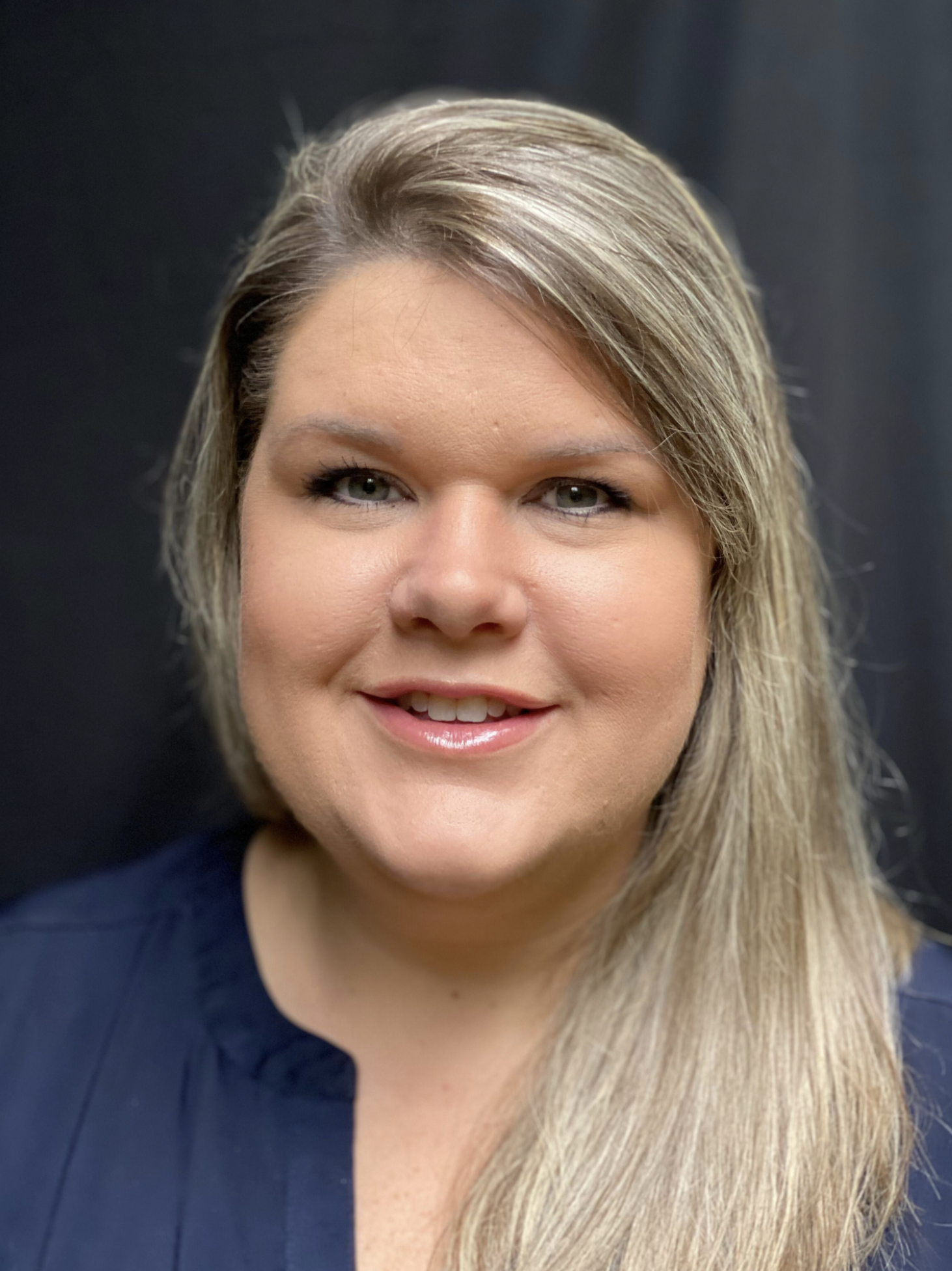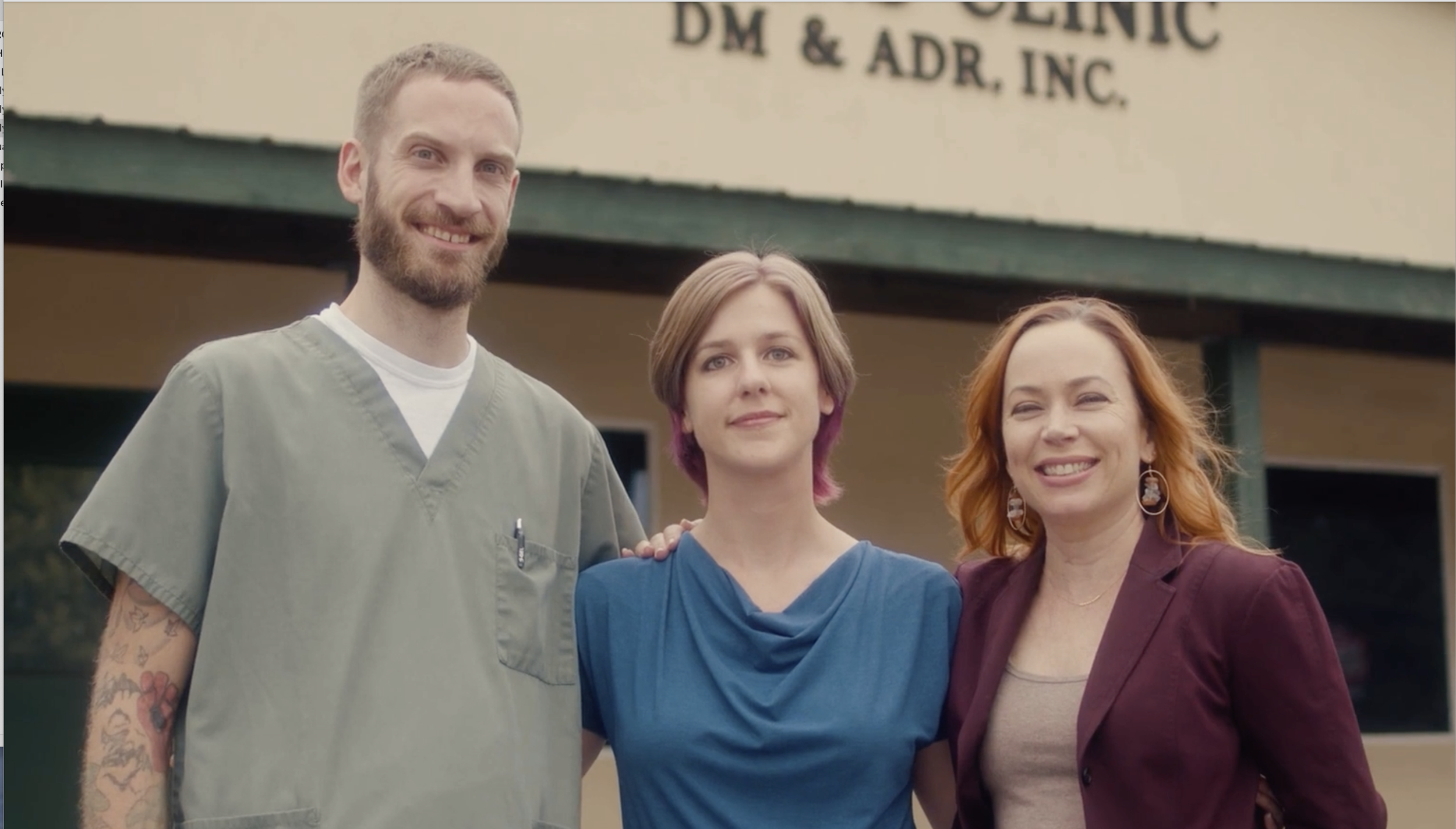Quarterly Report | January - March 2023
Risk Manager Ansley Evans, Middle Flint
“A phone call goes a long way towards making someone feel supported.”
Weekly Calls to HIV+ Individuals
This quarter, two individuals who were previously diagnosed HIV-positive walked into Middle Flint in Americus. “Our agency has a system,” says Risk Manager Ansley Evans. “When someone lets us know that they have been diagnosed with HIV, I’m notified.” And Ansley paves the way to treatment. She calls the local HIV specialist to make an appointment, then follows up with the individual, calling to make sure they remember the appointment, that they know where to go and that they have transportation. Afterwards she confirms, with both the individual and with the doctor’s office, that they kept the appointment.
Ansley also provides on-going support for 16 previously diagnosed individuals, making calls every Tuesday. “It started with the pandemic. I knew that with a compromised immune system they wouldn’t be going out very often and I wanted to make sure that everyone still had access to the services that they needed. So we set up a HIPPA-compliant zoom just for our HIV+ clients. I wanted to see their faces and for them to see me.”
“Then it just became a habit to talk to everyone at least once a week to see how they’re doing. Now it’s more likely to be by phone call than zoom. That’s when I find out that someone has a challenge getting to the pharmacy to pick up their medication so I arrange to have it delivered. We talk about medication, doctor’s visits, and things like nutrition. They're very compliant with their medication and their doctor’s appointments. We have a good working relationship.”
“Just that phone call goes a long way towards making someone feel supported,” says Ansley. “It lets them know that there is someone they can call if they need to. Most don’t call, but they know that I am here if they need me.”
Part of the success of the EIS program says Ansley is the support she receives. “The testing Lacy Sumner-Harris does is invaluable and I appreciate the support I get from above more than I can say. They are behind this program 100%.”
Jafaria Robinson and Candi Spradley, new EIS team at Legacy in Valdosta
EIS Counselor Jennifer Watson, Serenity
“I’ve always had compassion for people who are ‘other’ - individuals who don’t feel connected or accepted.”
It’s All About Connection
Born and raised in Augusta, Jennifer Watson started working at Serenity 11 years ago after she graduated from college. One year later, the HIV Early Intervention Services job opened up and Jennifer has been in the position ever since. “I’ve always loved to learn and I’ve always had compassion for people who are made to feel ‘other.’ Individuals who don’t feel connected or accepted – whether because of how they look or who they love or stigma around a disease like HIV.”
Over the years, Jennifer has seen an increase in resources for HIV-positive individuals in Augusta. The local Department of Public Health now partners with the Medical College of Georgia to offer a range of services for HIV-related care. And St. Stephen’s Ministry operates homeless shelters and provides rent and utility assistance as well as food, medical care, and transportation.
“Transportation is a challenge for many,” says Jennifer. Although not every neighborhood has bus service, Serenity does provide a limited number of bus passes. And if an individual has Medicaid or Medicare coverage, transportation to medical appointments is available.
This quarter, 73 individuals learned their HIV status, thanks to Jennifer. “Each encounter is different, but when someone is willing to talk about what it is that brought them in, they may be open to learning about prevention. I'm hopeful that those encounters have a cumulative effect. For one, that means that they return after the window period for another test. For another, it could mean that they learned something to help them reduce their risk of exposure to HIV.
As the only HIV tester at the agency, Jennifer maintains continuous contact with crisis and outpatient staff members. “Being in this for 10 years, you see a lot of change. Early on, I learned to network within the agency. Every time there’s turnover, I go over and introduce myself, offer my services.
Program Director Ali McCorkle (Right) with Nursing Supervisor Ryan McLaughlin (Left) and Data Coordinator Ryan Petty (Center), The Athens Clinic
“We’ve had a lot of happy tears.”
Celebrating Cures
Program Director Ali McCorkle knows exactly how many individuals treated in-house for hepatitis C at The Athens Clinic have been cured. As of March, the figure is 33. “It feels good to see how many people we've been able to help over the years,” says Ali.
They print out a copy of the lab result for the individual; Ali circles and highlights the words: HCV RNA is not detected.
“Most people are incredibly excited. But several were convinced that they would have hepatitis C for the rest of their lives. When they hear that they are cured, it takes a moment to sink in. The first reaction is disbelief; then comes joy.”
The Athens Clinic launched in-house HCV treatment in 2018, with their first cure documented on June 13, 2018. “Getting everything set up took some time; we had to get our policies and procedures in order, but now it’s embedded in our routine. We were already drawing blood when an individual came in for admission or their annual physical. And we’ve streamlined the process over the years. Now that the lab automatically reflexes Ab+ to RNA and RNA+ to Hep B, it’s even easier. As soon as we get the print-out of the lab results we order medication.”
“We wanted to focus more on overall heath so we asked one of our counselors, Kenzie Freeman, to come up with ways to promote health. She finds events and holidays and campaigns that engage our patients. February is American Heart Month and the week of 14 - 21 is National Condom Week. We have tons of condoms and it coincided with Valentine’s Day. Kenzie and Peer Specialist Paula Montgomery assembled dozens of condom bags - they went like hotcakes! It was fun.”
Kenzie Freeman (left) and Peer Specialist Paula Montgomery (right) with the February Health Promotion Display.
HIV Totals - 3,092 HIV Tests, 1 New Confirmed HIV+ Diagnoses
During Q1/2023, Imagine Hope partner agencies screened 3,092 individuals for HIV. Of those, 100% received their results, 1 newly diagnosed HIV+ individual was referred to care and confirmed linked to treatment. This quarter Early Intervention Services workers provided on-going support to 90 HIV+ individuals and re-linked 17 previously diagnosed HIV+ individuals who had fallen out of care to medical treatment.
HCV Totals - 3,127 HCV Tests, 210 New Confirmed HCV/RNA+ Diagnoses
During Q1/2023, the Imagine Hope HCV Program screened 3,127 individuals for HCV. Of those, 210 were confirmed RNA+ or chronically infected with HCV. During the same period, 36 were confirmed linked to medical treatment.







